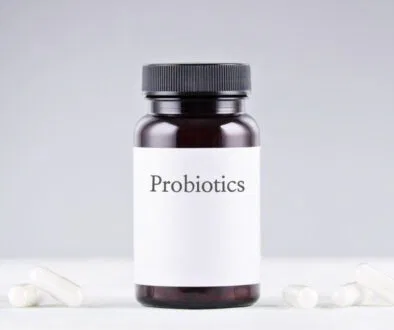All the Reasons Why Everything Tastes Salty: Salty Taste in Your Mouth

Published January 1, 2024
It is normal to have a salty taste in your mouth. Yet, for the right reasons only. One, eating potato chips or any addicting salty foods. Aside from them, you shouldn’t experience it.
A sudden salty taste in your mouth is one sign indicating changes in your body. If you’re currently dealing with it, do not worry! It’s a common issue with lots of culprits.
Continue reading as we’ll go over why everything tastes salty in your mouth suddenly. We’ll also share ways to get rid of it. Also, what is the diagnosis, and when you should see a doctor. Let’s solve your health worries, shall we?
What Does It Mean When Everything Tastes Salty?
A salty mouth or saliva is a peculiar case that individuals can experience for numerous reasons. This condition arises when the taste buds in the mouth detect excessive salt, leading to an unpleasant taste. Several factors can influence a salty mouth. Some of these are dehydration, specific medications, and oral infections. Fortunately, there are several ways to ease this discomfort. You can restore a pleasant taste in no time.
All the Reasons Why Everything Tastes Salty
1. Dehydration
Your saliva naturally has a small amount of salt. If you’re not adequately hydrated, the salt becomes more concentrated. You can imagine a spark of salt in a glass of water versus that same amount in a teaspoon. The teaspoon of water will taste saltier. Less water cannot dilute the salt.
Dehydration changes the quality of your saliva. Often, you can get rid of the salty taste by drinking adequate water. Do so daily.
Suppose you have a heart or kidney condition. Do not reach for a giant jug of water immediately. People taking diuretics for heart or kidney disease may need to restrict their water intake. You should ask your physician how much water you should drink instead if you’re dealing with any health dilemma.
2. Dry mouth
It is known as xerostomia. A dry mouth happens when your salivary glands don’t produce enough saliva. People with it may notice taste problems. They may experience a salty or metallic taste. Typically, you’ll deal with other symptoms too. Bad breath and a persistent sore throat are familiar with dry mouth.
Dry mouth becomes more common for older people. Yet, it can signal specific health conditions like diabetes.
You can find relief for it via over-the-counter products such as tablets. Also, for mouthwashes designed to lubricate the mouth. If they don’t help, it is when you should talk to your provider. Long-term dry mouth heightens your risk of tooth decay.
3. Medications
Certain medications can also influence dry mouth as a side effect. The result? The same salty or metallic taste in your mouth. Talk to your physician if you’re taking any prescription medication and notice a dry mouth. They may be able to switch your medication. Also, recommend home remedies. For one, dry mouth lozenges to combat the problem.
Medications that can cause a dry mouth or salty taste include:
- Antidepressants, especially tricyclic antidepressants
- Antihistamines
- Chemotherapy
- Diuretics
- Pain relievers
- Sedatives
4. Post-nasal drip
Allergies or long-term sinus infections can give birth to a constantly dripping nose that drains down your throat. It is known as post-nasal drip. This symptom can also cause a salty or off taste in your mouth.
A post-nasal drip can make you feel like you always want to clear your throat or cough. It can also affect your taste and smell.
5. Pregnancy
The hormonal changes of pregnancy can introduce inflammation in the nose. It is commonly termed as pregnancy rhinitis. It is a harmless condition that causes a runny nose, post-nasal drip, and sometimes a salty taste.
In general, it goes away after a couple of weeks after pregnancy. In the meantime, you may get some relief from saline nasal sprays.
6. Gastroesophageal reflux disease (GERD)
GERD (Chronic acid reflux) occurs when your stomach acid leaks backward into your esophagus. It can cause a salty or sour taste. Yet, these symptoms wouldn’t appear by itself. Most people with GERD also have a heartburn. Some struggle with a chronic cough or a feeling that something is stuck in their throat.
Many people get relief with drugs that neutralize stomach acids. Also, it decreases acid production. Untreated GERD can harm your esophagus. It can also increase the risk of specific health problems.
7. Autoimmune conditions
An autoimmune condition causes your body’s immune system to lash out on healthy tissue. If you have an autoimmune disease such as lupus, you have a higher risk of getting Sjogren’s syndrome. This condition impacts your salivary glands. It can lead to a dry mouth and an altered taste.
8. Neurological disorders
Any abnormal taste can mean your brain’s taste signals are not functioning as they should. It can include a lingering salty taste. Yet, this cause is rare.
The brain has nerves that are linked to taste. Rarely, a problem with those nerves, like a brain tumor or injury, can interfere with taste. Typically, however, you would notice other signs. For one, seizures, vision changes, or headaches.
9. Nutritional deficiency
Your mouth may have a salty or metallic taste if your body has insufficient nutrients. A deficiency can manifest quickly or over the course of many years.
You may also experience:
- Fatigue
- Irregular heartbeat
- Pallor
- Personality changes
- Confusion
- Numbness in your hands and feet
Treatment for nutritional deficiencies is specific to the vitamins your body does not have enough of. For instance:
- Folate deficiency. It is managed by eating a balanced diet. Taking prescription folate supplements is ideal, too.
- Vitamin b-12 deficiency. It will respond well to diet changes. Some people may need to take pills or nasal spray supplements. For severe cases, an injection of B-12 is administered.
- Vitamin C deficiency. It is treated with supplements. Eating more foods that contain it also helps.
10. Blood in the mouth
If you have a metallic or salty taste in your mouth, it can also be borne by oral bleeding. Your mouth may bleed if you brush your gums rigorously. It can also occur when eating pointed foods.
Good oral hygiene is critical for keeping up with good gums. Suppose you brush and floss your teeth regularly, but your gums still bleed; the reason could be gum disease. Gingivitis can also lead to sore and swollen gums.
11. Oral infection
Delayed treatment for gingivitis can make things worse. It can direct to an infection called periodontitis. If the condition is treated early, you can expect a positive outcome. Otherwise, in worse cases, it can harm your teeth and bones.
Oral bleeding can also introduce other infections. For example, an oral thrush. This infection can lead to white patches or a burning feeling inside your mouth. It is also very painful. Some people experience a loss of taste. Others have a salty mouth.
How to Get Rid of Salty Taste in Mouth? Treatment for Salty Mouth
Mild symptoms of a salty flavor in the mouth might be eased with at-home treatments. Some recommendations to address the salty taste due to dry mouth are:
- Oral care
- Avoiding dry, salty, and acidic foods
- Not drinking alcohol
- Not smoking
- Taking over-the-counter saliva substitutes
- Chewing gum
- Sucking on hard candy or lozenges
- Drinking adequate water, about eight to 12 glasses daily
The proper management treatment for a salty taste in the mouth will anchor on the culprit of the symptom. You should see a healthcare provider to discuss your abnormal taste. The two of you can establish a treatment plan if in doubt.
Diagnosis for Sudden Salty Taste in Mouth
In many scenarios, you may not need special examinations for alterations in taste. You should find relief after discussing your symptoms with your doctor. It is especially true if you have mild to moderate symptoms. Yet, you may be referred to a specialist for taste disorder testing.
Healthcare providers practicing in diagnosing taste disorders are acknowledged as otolaryngologists. These are ear, nose, and throat specialists. ENT may use any or all of the following to rule out what is causing the salty taste.
- A physical test of your ear, nose, and throat areas.
- Medical history and medication review
- Taste testing
- If needed, you may be referred to a dental provider.
When to See Your Doctor for a Salty Mouth?
If the salty flavor in your mouth interferes with your eating, drinking, or life in general, you should consult a doctor. Small lifestyle changes may be recommended. Sometimes, you may need to contact a specialist for a taste disorder diagnosis. Also, in doing an in-depth tasting to determine the cause.
Suppose you have a head injury or recent surgery. Ask for medical care immediately. A salty flavor may indicate a CSF leak. It can direct to a severe infection or medical situation requiring immediate care.
Bionaze for Oral Health
If you’re suffering from chronic sinus, ear, nose, throat, and mouth issues, get Bionaze. Bionaze is an effective oral probiotic providing the highest quality ENT and Sinus Care quality. It can help resolve post-nasal drip. It can also cause tonsil stones and bad breath. It also aids in improving your well-being.
It is a great supplement. And it can improve your salty mouth condition and more. Invest in your health. Invest in Bionaze.

Frequently Asked Questions About Salty Taste in Mouth?
1. Is the salty taste in your mouth a symptom of diabetes?
A salty taste in the mouth can be a symptom of diabetes. This condition can lead to an impairment of taste. It can include a salty taste sensation.
2. What medical condition causes a salty taste?
Dehydration and dry mouth are too conditions that can give a salty taste.
3. What deficiency causes a salty taste?
Vitamin B12 and zinc deficiency have been connected with a loss of taste. It can result in a salty taste sensation.
4. When should I worry about a salty taste in my mouth?
In case the salty taste lasts for an extended period. And it is without any apparent cause. Also, if the salty taste accompanies other symptoms such as dry mouth, excessive thirst, weight loss, and fatigue.
And there you have it. A salty taste in the mouth is not something you should worry about. It is once you start ruling the cause. You can find relief based on our guide and a physician’s advice. It’s critical to seek a high-quality write-up for your medical queries continually.
Share our article to spread awareness on health and wellness.
Benefit From The Latest Advancements In Probiotic Science With Bionaze
Bionaze is a proprietary blend of probiotics proven to promote ear, nose, and throat health, improve digestion, and support your immune system. The active ingredients BLIS K12, and BL-04 are considered among the best probiotics according to science.
Get 25% Off Your First Order when you use BIO25 at checkout!

This Content Has Been Reviewed For Factual Accuracy
This content has undergone thorough fact-checking by our team of internal experts. Learn more about the meticulous editorial standard for our website here.
ADVERTISEMENT

About The Author
I am Tracy Gorman, a seasoned writer passionate about creating helpful content. I can delve into any niche and produce valuable articles with my expertise. Beyond writing, I am an avid learner with a passion for digital marketing. During my leisure time, I enjoy immersing myself in literature, experimenting with fashion, staying active, exploring culinary delights, indulging in movies, savoring music, and socializing. And, it’s safe to say, I love cats!




